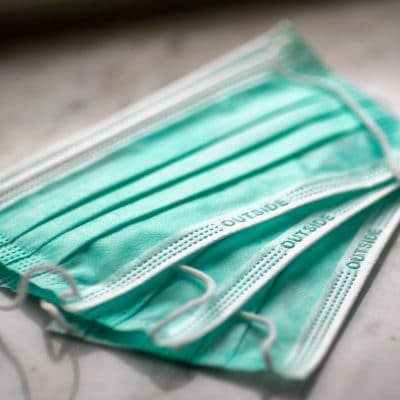The Jesuit Refugee Service (JRS) UK is calling for all migrants who don’t currently have right of abode to be given leave for the duration of the COVID-19 pandemic, and is renewing calls for immigration detention centres to be closed in response to the pandemic. This echoes recommendations made by Legal Sector Workers United (LSWU).
LSWU, a union of legal practitioners, observed that social distancing and remote working, whilst vital to protect health, created often insuperable barriers to the proper representation of clients and thus the workings of the immigration system. Among several key issues, they noted “Immigration clients are particularly vulnerable, frequently facing mental health issues, trauma, language barriers or issues with capacity. Without face-to-face meetings, such vulnerabilities render it impossible for solicitors or caseworkers to take accurate witness statements, and for barristers to receive reliable instructions and make submissions.” They also noted particular difficulties in representing clients in detention. LSWU said they were “forced to choose between discharging our professional duties, and protecting the health of ourselves, our clients and wider society.”
JRS UK’s legal team represents many vulnerable clients. Michael Tarnoky, JRS UK’s Legal Officer, said: “Our experiences of continuing to try to advise our refugee friends during the crisis demonstrate that a new approach is necessary if people’s legal rights are to be maintained. Our clients are largely those whose protection applications have failed, often through a combination of harsh decision-making and lack of access to competent representation. Many have been in the UK for years after appeal rights have been exhausted. Many are simply not removable regardless of the current crisis, many have strong arguments for why they should be allowed to remain.
“Documenting these issues is currently almost impossible. Embassies cannot be approached for evidence about nationality or re-documentation, GPs and medical experts cannot be expected to provide detailed medical reports or up to date information. Taking statements from our clients or witnesses remotely is, even where logistically possible, likely to cause translation or factual errors. Evidence about family life or long residence cannot be obtained without further public health risks. The Home Office’s statelessness unit is presently unable to function, and requests for Home Office files cannot be dealt with properly. Even by video, interviews will often require representatives and clients travel to an office where they can access a video link. The Home Office’s decision to return to postal submission for fresh claims was a positive step, but a deeper and fundamental change of approach is needed.
“Most of our clients were unlikely to face removal before the crisis hit. They are left in limbo until we can assemble sufficient evidence to submit in an application to resolve their cases. Taking no action in the current situation will only increase the backlog of unresolved cases.”
LSWU demand “a time-limited grant of leave to remain for all those without a present right of abode in the UK, including undocumented individuals and visa overstayers” and for an end to detention. They argue that such leave should have no restrictions on access to public funds, the NHS, or the labour market.
LSWU’s statement follows calls in parliament for the accreditation of refugee doctors to be fast-tracked, and for asylum seekers qualified as doctors to be allowed to work. The government has asked retired healthcare professionals to return to work in the NHS during the coronavirus crisis.
Sarah Teather, JRS UK’s Director, said: “Granting temporary leave to all migrants during this emergency is a sensible and pragmatic way to protect public health and harness the skills of many for the national cause. We cannot afford to have trained nurses, doctors, care workers and other key workers barred from contributing to society when they are desperately needed.
“The wellbeing of every person matters, more now than ever before: anyone unable to access stable housing or basic provisions places themselves and potentially others in danger. We have to act. The quickest and easiest solution is to grant everyone with an outstanding immigration application immediate leave and the right to work, and to provide a fast route to regularise others, bringing them out of the shadows and into the workforce. It is the only way to protect public health, get help to those who need it and get everyone contributing what they can.
“It is also realistic: the Home Office cannot possibly deliberate on people’s immigration cases during this crisis, and they cannot afford to leave people without decisions in the meantime.
“This is an emergency and in an emergency all prior assumptions must be left aside.
“JRS UK stands ready to work with government to help reach those who need temporary leave. Now is the time to work together and unite to save lives.”
LSWU also call for an end to detention during the pandemic, arguing “At a time when the public is being advised to stay indoors and practice social distancing, it is unacceptable that individuals continue to be held in immigration detention. Detention centres are optimal breeding grounds for COVID-19, posing significant risks of transmission to clients, staff and wider society.” This echoes a specialist report by Professor Richard Croker which found that spread of infection was likely to “occur rapidly” in detention centres.
William Neal, JRS UK’s Detention Outreach Officer, said: “Detention centres are enclosed spaces in which infection can spread quickly. Many we support in detention have complex health problems, and we and our colleagues across the sector observe that healthcare in detention is often inadequate. All of this renders immigration detention especially dangerous in the context of COVID-19. Detention centres must urgently be closed and people provided with accommodation on release, to protect the health and lives of those detained, of detention centre staff who move in and out of centres, and of society as a whole.”
Immigration detention is ostensibly for the purpose of removal, but travel bans and tight restrictions on travel across the globe are likely to make imminent removal impossible in the majority of cases.
Last week, the Portuguese government temporarily granted citizenship rights to all asylum seekers and migrants, on grounds of public health. JRS UK’s call, and LSWU’s, occur in the context of widespread demands for an end to the hostile environment and release of all immigration detainees during the COVID-19 outbreak. The vast majority of asylum seekers are currently banned from working in the UK. Due to the COVID-19 pandemic, the Home Office has been obliged to stop processing applications to be recognised as stateless, until further notice. Stateless people have no right of abode anywhere.



